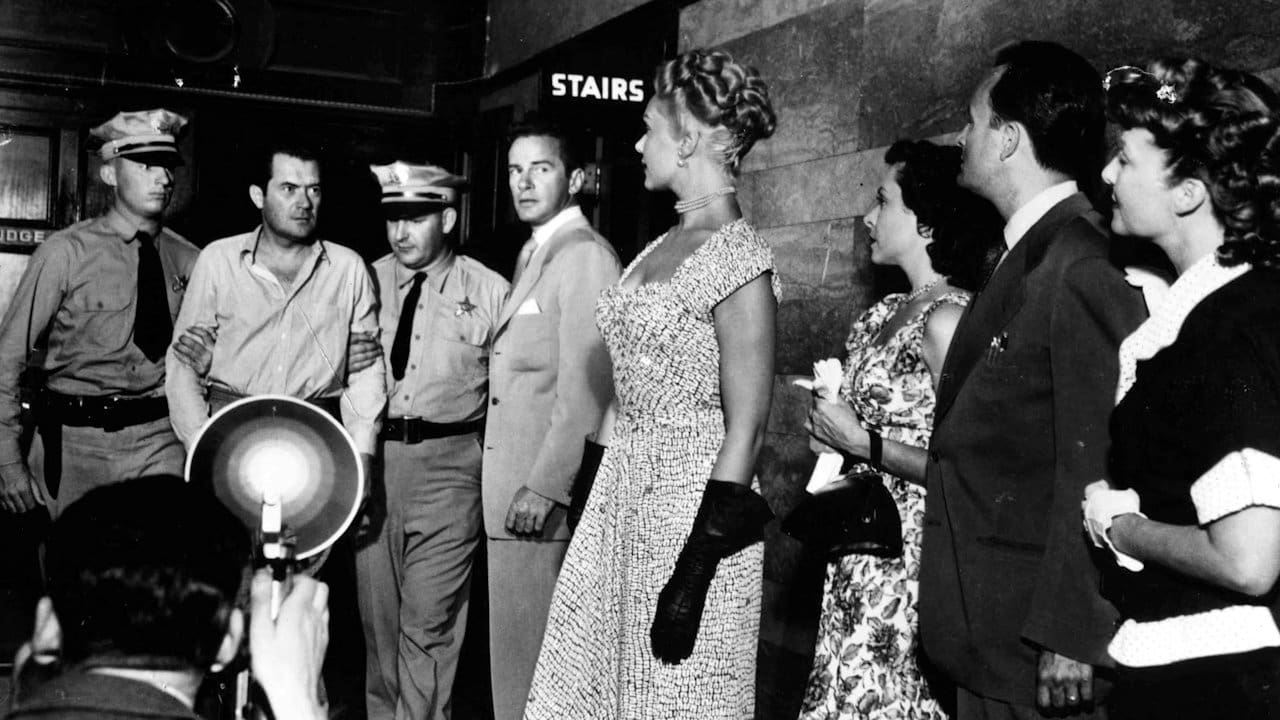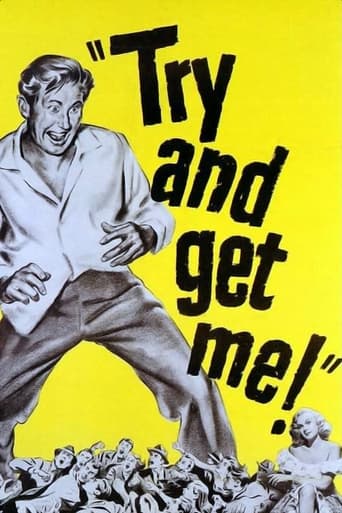

This Movie Can Only Be Described With One Word.
... View MoreAm i the only one who thinks........Average?
... View MoreClever, believable, and super fun to watch. It totally has replay value.
... View MoreFun premise, good actors, bad writing. This film seemed to have potential at the beginning but it quickly devolves into a trite action film. Ultimately it's very boring.
... View MoreWatched this film tonight for the first time and expected a standard film noir but got a thrilling story of a heartless killer (Lloyd Bridges), a man whose life is spiraling out of control (Frank Lovejoy) and an ending that left me speechless. I am shocked that this film is not talked about more in the lists of the best noirs of all time.
... View MoreInteresting little B-movie thriller, which starts with the theme of what an honest but desperate man will do to help his family survive, moves on to a loaded discussion on sensationalist lurid journalism before ending with a damning indictment of mob rule.It's quite a trip and to get us there introduces us to the memorable character played by Lloyd Bridges, a cocky young psychopath whose petty crimes take along with him on the lure of easy money, unemployed, hard up family man Frank Lovejoy. It's not long though before Bridges' true character comes to light, escalating in no time to a kidnapping and brutal murder with disastrous outcomes for all concerned.For its time, this is all pretty heady stuff, shown to us in matter of fact style by director Endfield with to my mind anyway, little real deference to noir conventions. The film is a bit slow to get started but once Bridges appears, it picks up on his manic energy. Some of the peripheral characters are just a bit too obvious, like the humanist professor friend of the sensationalist journalist whose screaming headlines, the film would have it, egg the local townsfolk to storming the jail while said journalist's own realisation of his part in the mayhem is also a little laboured but these are counteracted in some measure by some effective low-key character acting by Lovejoy and Katherine Locke as the lovelorn girl with whom Bridges sets him up for alibi purposes.The concluding riot scene, (with it seems a lot of university students to the fore!) gets the biggest budget and is effectively staged, reminiscent of its predecessor in Lang's classic "Fury", before the big downbeat message is double-underlined for us as the credits roll.A very watchable and considering its era, bold movie with interesting characters, dealing with big subjects and ending with a thundering moral message to boot. Quite a lot to pack in and done pretty well all round, I'd say.
... View MoreHoward Tyler (Frank Lovejoy) is a good honest family man living in California who just can't catch a break. Struggling financially and upset that he can't support his family, he falls in with small time hoodlum Jerry Slocum (Lloyd Bridges) who convinces him to join him in robbing gas stations. However, things start to get out of control as they kidnap the son of a wealthy family to hold for ransom. But what follows will have far reaching consequences for all involved...Also known as Try And Get Me, The Sound Of Fury is directed by Cy Endfield and is based on the novel The Condemned by Jo Pagano (who along with Endfield also writes the screenplay here). The story is incredibly based on a factual episode known as the Brooke Hart case that occurred in 1933 in San Jose, California. Fritz Lang's 1936 film Fury was also loosely based on the same story, which probably explains why Endfield's film had a name change to Try And Get Me.A brilliant crime thriller, the film is a damming indictment of uncontrolled violence in small town Americana. Its themes involving class divides, the uncivilization and ignorance of some Americans, moral and social collapse and the irresponsibility's of the press, are all rammed home with force by the soon to be blacklisted director. By definition, Endfield and Pagano have crafted the ultimate social conscious movie. Filling it with relevance that will last the ages, the undervalued Endfield also come up trumps in mood setting and visual flourishes. This be prime film noir too. Tumbling pebbles, a crime shown in reflection, our protagonist standing in the dark ruefully looking out a window, a complete night club sequence shot off kilter, all indelible images that linger long in the memory (Guy Roe on photography). Then there's the finale, a brutal and shocking ending that had Raymond Borde & Etienne Chaumenton (A Panorama Of American Film Noir 1941-1953) proclaiming it to be one of the most brutal sequences in postwar American cinema. They aren't exaggerating, it is, and it caps off a stunning movie.There can be a reasonable argument put forward that the film asks for pity towards the hoodlums of the piece. But that's a confliction that serves as a call for a deeper thought process with the film. The makers are merely adding drips of fuel to an already incendiary device. Hugo Friedhofer provides the music and Kathleen Ryan, Richard Carlson & Katherine Locke fill out the support cast. However, this is Bridges' movie, Lovejoy is excellent as the increasingly fretful Tyler, but Bridges goes from smarm to charm with ease and then to crazy psychotic in the blink of an eye, an unnerving character given the treatment by the big man. Still awaiting a DVD release, any chance you get to see this film you should grab with both hands. Powerful, intelligent stuff. 9/10
... View MoreThe subject headline - Try And Get Me! - is the title of the movie, as I know it.Man, this is a different kind of film noir story, mainly because of the ending. It centers around two crooks, played by Lloyd Bridges and Frank Lovejoy. Of the two, Bridges is the more fun guy to watch. He and his girlfriend (played by Adele Jergens) have some very good dialog. Lovejoy and his potential girlfriend have some lines that are so bad they are laughable! It almost reminded me of poor Elisha Cook verbally duking it out with tough-gal Marie Windsor: in other film noirs corny but fun stuff.This was an entertaining film almost from the start. The last 30 minutes are really intense after Lovejoy cracks, stupidly admits his crime and is unfairly accosted as the murderer (he was the accomplice, not the murderer.) Then, the townsfolk, fueled by sensationalist journalism by the local paper, form into a huge lynch mob and storm the jail after the two criminals. The scenes of that, and what happens, are horrific. I am not exaggerating. In fact, it was one of the most disturbing scenes I've ever seen on film, especially for a classic movie. The cheers from the crowd when they kill the two men (which is not shown) are downright chilling.The film obviously is a powerful indictment on yellow journalism and of mob mentality. The last scene was so distasteful that I have never wanted to watch this movie again!
... View More